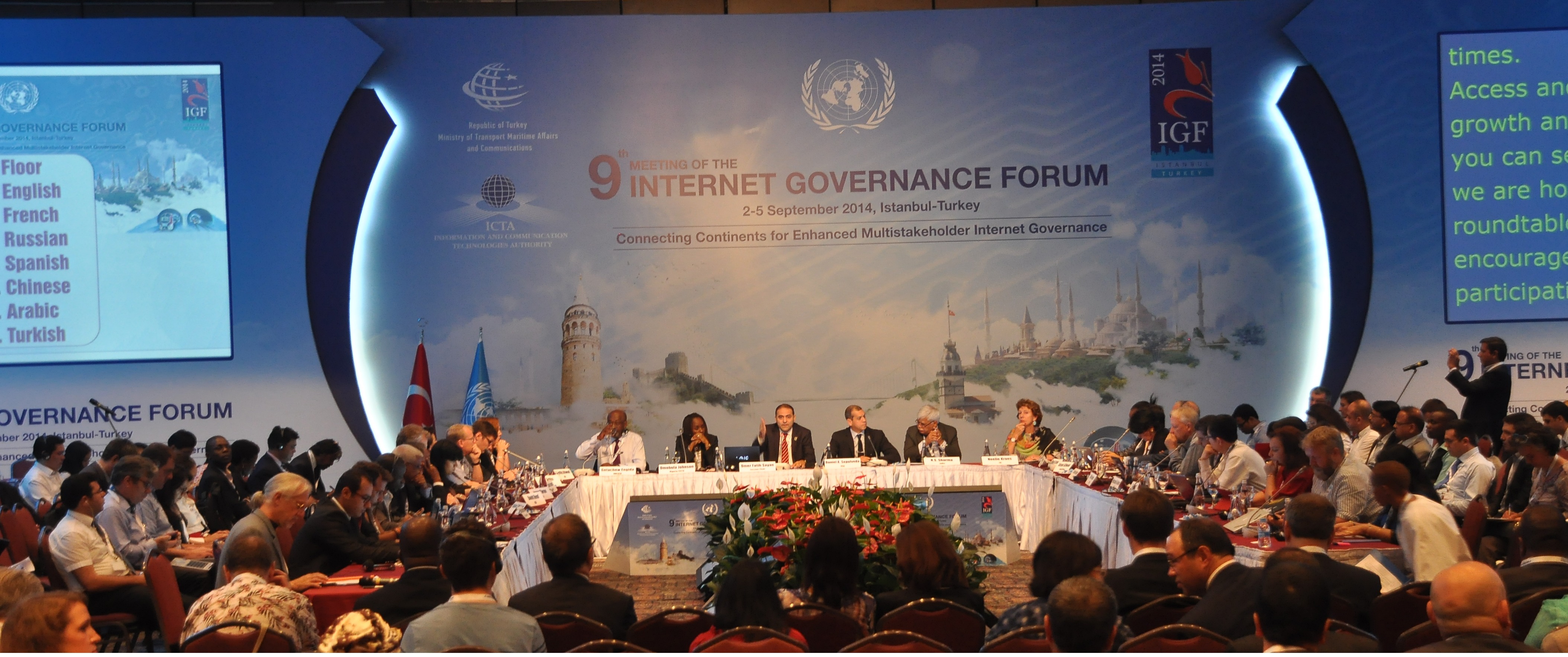After many months of hard work and preparation, last week’s IGF 2014 proved to be an extremely productive one. Building on a busy and compelling agenda, the community was united in its willingness to address concrete issues, with a view to work towards tangible solutions.
Internet Society CEO Kathy Brown, in her remarks at the opening ceremony, outlined four clear calls to action: 1) demonstrate that the IGF is essential to the future of the Internet; 2) strengthen the IGF by producing tangible results; 3) be fearless in tackling the tough, important issues; and 4) ensure the IGF belongs to everyone through broad engagement both inside and outside of the Forum. Looking through the lens of these four calls to action, I believe that we can judge the Istanbul IGF as having been a great success, one that offers a strong foundation for IGF 2015 in Brazil.
Throughout 2014, the Internet community has proved its capacity to produce tangible outcomes within multistakeholder collaboration frameworks. Brazil’s NETmundial event was one such achievement, producing key principles and a roadmap for Internet Governance in a bottom-up and inclusive fashion.
At the 2014 Internet Governance Forum, the community faced the challenges head on with new collaborative processes designed to turn dialogue into action and numerous, substantive results:
- The first IGF Best Practice Forums developed five draft documents on CERTs, Online Child Protection and other critical issues. They are now open for comments, through 15 September. New themes are now considered to feed the 2015 IGF in Brazil, including one on Privacy in the Digital Age.
- A statement requesting the renewal of the IGF’s mandate, and its lengthening to 10 years, was drafted to send to the United Nations; the discussion and review of that draft continues online.
- The African Declaration on Internet Rights and Freedoms was launched. This pan-African initiative promotes Human Rights standards and openness principles in Internet-policy making across the continent.
- The IGF Community issued a statement addressed to the Human Rights Council calling for greater ties between the two processes, in a multistakeholder approach to human rights issues.
- The launch of the Internet Governance Forum Support Association offers a new funding channel for the long-term sustainability and growth of the IGF to help it reach its full potential.
IGF Istanbul tackled difficult, yet important topics such as Net Neutrality and the IANA transition. In so doing, we also made significant progress in demonstrating to the world that the collective work that flourishes in a bottom-up, distributed, multistakeholder environment is the most effective way to ensure an open and inclusive Internet model.
With an exceptionally high level of participation – nearly 3,500 participants, including 1,000 remotely – IGF Istanbul gathered leaders and stakeholders from all regions and stakeholder groups. As the IGF evolves from an event into a continued working process, it will offer all Internet users a chance to get actively involved in ongoing dialogues, such as the IGF Best Practices.
But what happens now? The IGF is at a critical juncture. Headway made over the past week, while significant, was but the first step towards demonstrating outcome-oriented reforms and organizational sustainability.
In order to ensure that the IGF survives and thrives, we must continue to build a collective voice, forge a collective path and focus on a collective goal: to preserve this important Forum for neutral, inclusive, global collaboration, dialogue and debate.
Looking ahead to IGF 2015, strong support of the regional and national IGFs is critical to move the dialogue forward. If we can catalyze the multistakeholder IGF model in every country, city or small village, we will build a stronger global network. And, we also want to encourage the participation of youth representatives to attend and engage in the Internet governance ecosystem.
As Internet-defining issues continue to emerge, the IGF has the potential to play an increasingly important role in the global debate on Internet governance. Only by working together and expanding the engagement of all stakeholders, can we build, strengthen, and expand the IGF network so that every voice may be heard!

